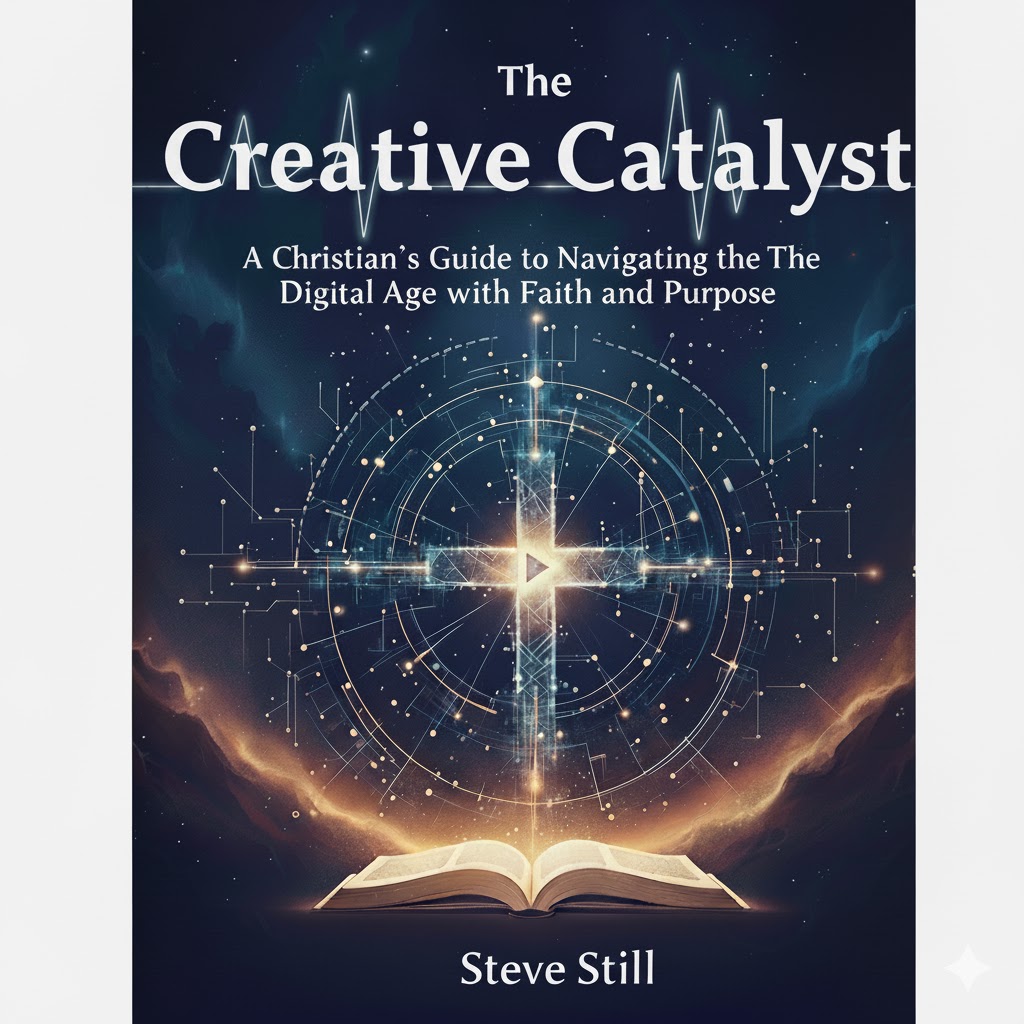
Introduction
Welcome to the Machine, God is Still in Control
We live in a time of unprecedented technological change, marked by the rapid advancement of Artificial Intelligence. As "the machine" becomes more integrated into our lives, performing tasks that were once exclusively human, it's easy to be captivated by its power and potential. The allure of AI—its capacity to process vast amounts of information, create art, and automate complex processes—can tempt us to put our faith in human ingenuity alone. Yet, for the Christian, this is a crucial time to remember a timeless truth: while we may "welcome the machine," God is still and always will be in control. This perspective offers not a retreat from technology, but a grounded and purposeful engagement with it, rooted in the understanding that all creations, including our most sophisticated ones, exist under God's ultimate authority. As Proverbs 19:21 reminds us, "Many are the plans in the mind of a man, but it is the purpose of the Lord that will stand."
The person holding this book is the Creative Catalyst: someone called to be an agent of transformation in the digital age. You are not a passive consumer of technology, nor are you a fearful Luddite. Instead, you are a spiritual pioneer who understands that the incredible power of the digital world—from code and data to AI and social platforms—is a creative gift to be stewarded. The Catalyst is the person who intentionally blends divine creativity, love, and ethical wisdom with digital power, refusing to let screens merely distract or divide, but instead choosing to use them as tools to amplify justice, restore connection, and build a world that reflects Christ's kingdom. This book is your guide to embracing this identity, equipping you to move from chaos to clarity in your digital life.
This clarity begins with distinction. Our unique purpose as human beings, created in God's image, is not diminished by the rise of AI, but rather clarified by it. While AI can simulate human-like functions, it lacks the spirit, consciousness, and moral agency that define our God-given identity (Genesis 1:27). This distinction should serve as a powerful reminder of our spiritual purpose and the ultimate source of our wisdom. While AI can generate insights from data, it lacks the guidance of the Holy Spirit, which is essential for true discernment and understanding of God's will (1 Corinthians 2:16). A Christian approach to AI, therefore, is not to worship the machine, but to use it wisely and with humility, recognizing that it is a tool meant to serve humanity for the common good. We are called to be good stewards of creation, and that includes our technological creations, wielding them with a sense of purpose that ultimately points back to our Creator.
For Christians, navigating this new era of technology requires wisdom, intentionality, and a firm foundation in biblical truth. The apostle Paul's admonition to "not be conformed to this world, but be transformed by the renewal of your mind" (Romans 12:2) is particularly relevant today. We must not allow the promises or anxieties of the "machine" to dictate our values or our faith. Instead, we must use our God-given wisdom to ask critical questions about how AI is developed and used, ensuring it reflects justice, compassion, and the sanctity of human dignity. By keeping our focus on God's sovereignty, we can embrace the opportunities AI presents without being mastered by it, continuing our mission to serve others and glorify God with all the tools at our disposal.
As believers, we are heirs to an extraordinary legacy of creation, fashioned in the image of a creative and purposeful God (Genesis 1:27). This inherent human drive to create is a reflection of our Creator, yet today it is channeled through a digital age teeming with unprecedented opportunities and complex challenges. Rather than allowing technology to simply happen to us, we are called to be intentional participants—not just consumers, but "creative catalysts" who actively shape this new frontier for God's glory. This guide explores how we can harness our divine capacity for innovation, using the powerful tools of the digital age with wisdom, discernment, and a clear, faith-driven purpose, ensuring that our online lives are as fruitful and Christ-centered as our offline ones.
The digital world, much like any powerful tool, is a double-edged sword, capable of immense good or potential distraction. Scripture reminds us to "redeem the time, because the days are evil" (Ephesians 5:16), a timeless truth that is especially relevant in a world where countless hours can be lost to mindless scrolling and digital noise. A Christian approach to the digital age is therefore not about condemnation, but about intentionality. We must renew our minds daily (Romans 12:2), seeking God's wisdom to discern truth from falsehood and to prioritize what truly matters. By thoughtfully navigating the digital landscape, we can use platforms and technologies to build authentic relationships, share the hope of the Gospel, and encourage one another, just as the early Christians wisely used the Roman roads and the codex to spread their message.
Ultimately, the goal is to use our creative impulses and digital tools for what is truly good and purposeful, remembering that we are God's "workmanship, created in Christ Jesus for good works, which God prepared beforehand, that we should walk in them" (Ephesians 2:10). The creative catalyst is not just a user of technology, but a wise steward who understands that our digital footprint should reflect our identity in Christ. This journey calls us to cultivate a posture of humility and discernment, knowing that our ultimate hope and purpose are not found in the tools we create, but in the God who created us. By doing so, we can ensure our digital creations and interactions serve to glorify Him, enrich our communities, and become a living testament to His unending creativity and grace.









